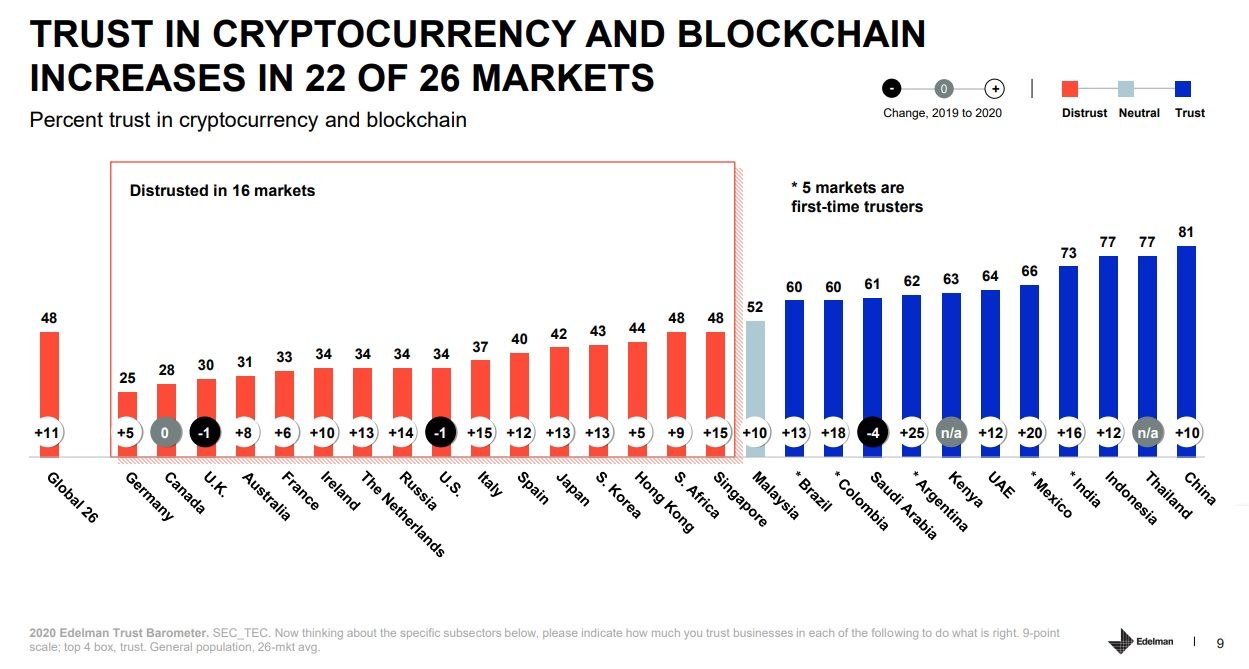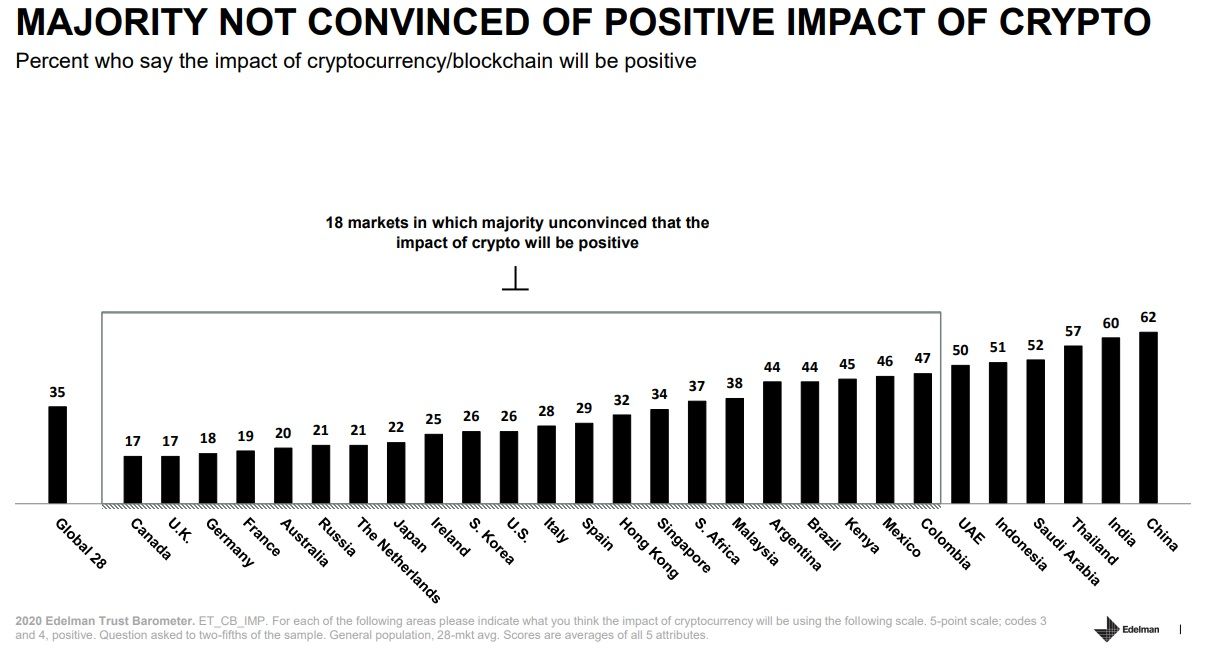[ad_1]
Latin America is increasing its exposure to the world of cryptocurrencies and many are already expecting the authorities to soon come up with better regulations that allow the safe and legal use of digital assets.
A recent study published by global communications company Edelman Inc. found that almost 60% of the population believe that cryptocurrencies should have a more complete regulatory system. Spain, Colombia and Mexico stand out from all these countries as markets in which citizens are hungry for better regulations.
The Brazilians believe that fewer regulations are required or that at least the existing regulations are sufficient for the ecosystem to develop normally.

The results in this regard are not unexpected as the Colombian market has some time to reflect this trend. A study by the P2P Paxful cryptocurrency exchange platform found that the 58% of the population believed that regulatory efforts in the country could contribute to increasing interest in the use of cryptocurrencies.
Developing countries are more crypto-friendly despite the uncertainty
The survey also showed an increase in confidence in cryptocurrencies in developing countries. Brazil, Colombia, Argentina and Mexico are on the list with a high level of trust of over 60%.while unfortunately Spain has only 40% trust, although the population has a better view of the tokens compared to last year and is increasing by 12%.

With regard to the future, doubt is the queen of the party, as uncertainty exists in most parts of the world about the impact of the use of cryptocurrencies on the future of global finance. Only 6 countries (United Arab Emirates, Indonesia, Saudi Arabia, Thailand, India and China) are over 50% optimistic on average.
Colombia is the Hispanic country with the highest optimism about the future of cryptocurrencies With 47% of the population in Spain, only 29% of the population believe that the effects of the cryptocurrency revolution will be positive.

The panorama of the survey is generally quite positive. Edelman has been doing this type of research for 20 years For the last study, they interviewed more than 24,000 people online in 28 different countries.
The survey was conducted between October 19 and November 18, 2019. Will the mood have changed after halving?
Do you use telegram? Join the Telegram trading community to get exclusive buy and sell signals for cryptocurrencies, educational content, discussions and project analysis!
Join the Cryptocurrency group on Facebook to comment on the latest news, share the best blockchain projects and trading signals, and win the market
Disclaimer of liability. Continue readingRead less
As a leading blockchain and fintech news company, BeInCrypto always strives to comply with strict editorial guidelines and the highest journalistic standards. With this in mind, we always encourage and encourage readers to do their own research into the information provided in this article. This article is intended as news and is for informational purposes only. The topic of the article and the information provided may have an impact on the value of a digital or cryptocurrency asset, but is never intended. Likewise, the content of the article and the information contained therein do not intend and do not intend to provide sufficient information for a financial or investment decision. This article is not expressly intended as financial advice, it is not financial advice and should not be construed as financial advice. The content and information in this article have not been prepared by a certified financial professional. All readers should always conduct their own due diligence with a certified financial professional before making an investment decision. The author of this article may have any amount of Bitcoin, cryptocurrencies, other digital currencies, or financial instruments at the time of writing, including but not limited to those listed in the content of this article.
[ad_2]

Add Comment